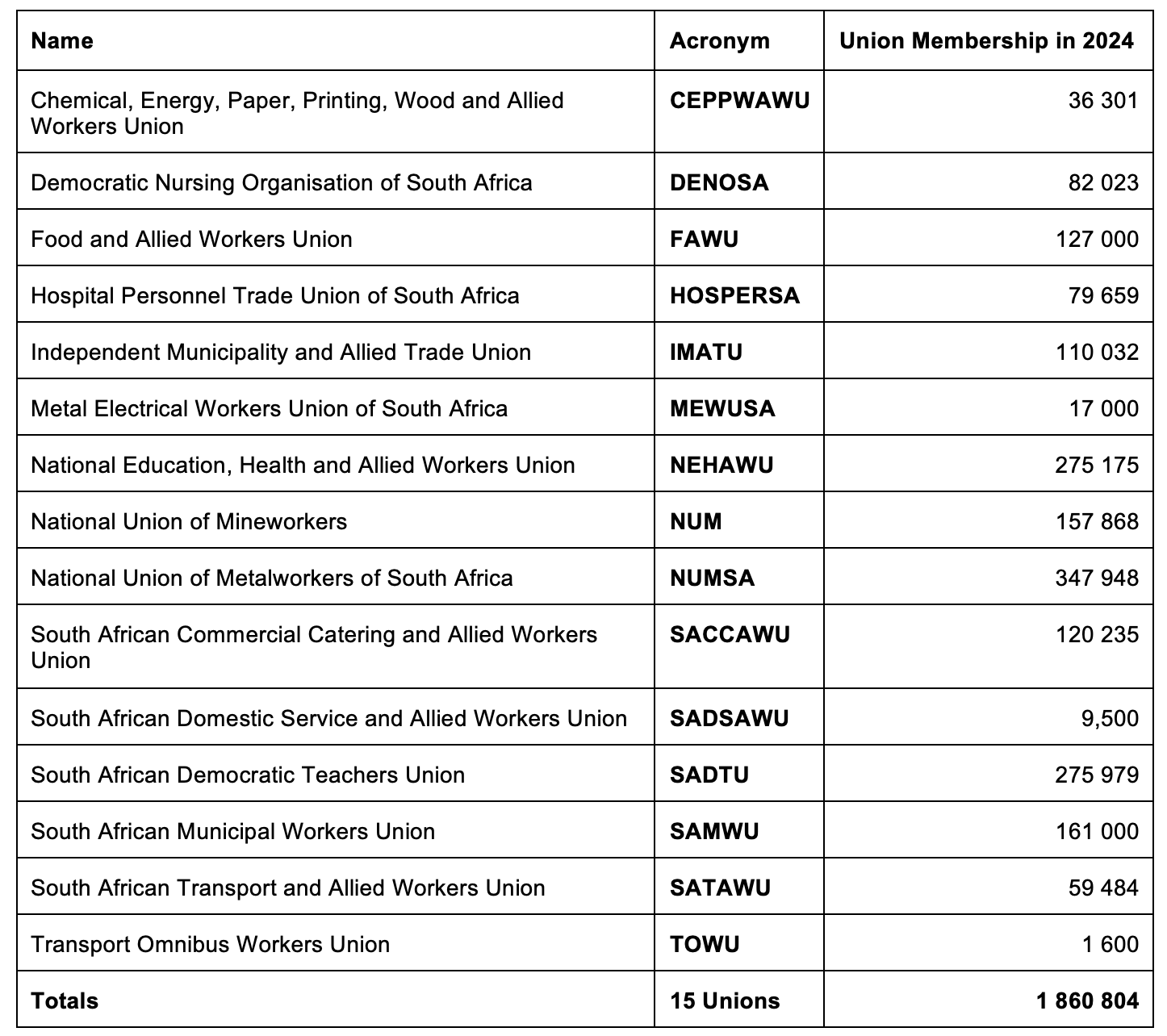About Us
VISION
The labour movement is an integral part of a vibrant civil society, which promotes egalitarianism through the provision of coherent alternatives for greater economic, social and political justice.
MISSION
To develop in a participative and accessible way, an objective and independent research and resource base that will shape the discourse on the alternative strategies necessary to strengthen labour and civil society representation and influence on issues of production and distribution in the economy.
The Labour Research Service (LRS) is a membership-based labour support organisation founded in 1986.
The LRS provides learning interventions, resources, and tools to strengthen the core competencies that trade unions need to prosper.
We inspire workers to believe in and exercise their individual and collective power in the struggle for social and economic justice.
We support working class leaders who want to renew their approach and strategies for representing workers in a changing world of work.
We stand for the development of our member unions and the trade union movement in Africa.
Strategic outcomes
An enabling environment for what we do
- Skilled people that find fulfilment in their work
- Supportive infrastructure for what we do
- Good Governance
A guide for us in what we do
- Trade union development in everything that we do*
- Sustainability through programme development
- Technology for trade unions
*This is the thread that runs through all of our work. Anything we do must contribute to trade union development and the development of the trade union movement in one way or another. Our work is geared towards leadership development programmes and resources for organising and negotiating the collective interests of working class people.
Guiding us in how we do what we do
- Networking and alliance building for influence*
- Positive influence out in the world
- Inclusion as a guiding principle in what we do
* We view networking and alliance building as a vital strategy, especially for smaller organisations that seek to work on complex themes and to amplify their reach. Our networks include individuals and organisations with an affinity for working class politics and who we are able to collaborate, contribute or draw on our work. Among our partners you will find trade unions, trade union national centres, regional and continental worker formations and organisations, global unions, universities and other tertiary institutions, solidarity support organisations, community-based organisations and private sector consultancies.
Our constituency
- Organised and unorganised workers in both formal and informal employment
- Workers and worker organisations in more marginalised sectors, for example, domestic workers, employees of labour brokers, farmworkers and women in services sectors
- Public sector workers
Leadership and governance
The LRS is union-controlled, with 15 member trade unions representing over two million workers in South Africa. We work across federation lines, creating and supporting spaces that are inclusive and which emphasise commonality.
List of member trade unions

LRS Board Members
Our board is elected at an annual general meeting. Our board members are a mix of trade union worker leaders and officials. There are currently five elected directors of the LRS and the executive director is an ex-officio director. The board of directors who serve without pay provide an oversight role and ground the LRS in the trade union movement.
Current Board members
Funeka Klaas (SACCAWU); Trenton Elsley (LRS); Lawrence Ntuli (SAMWU); Mike Fafuli (NUM); Cindy De Lange (SADTU).
Registration number: 1986/002993/08 | VAT registration number: 4810105587 | Tax registration number: 945/0255/03/0 | NPO registration number: 050-326-NPO
